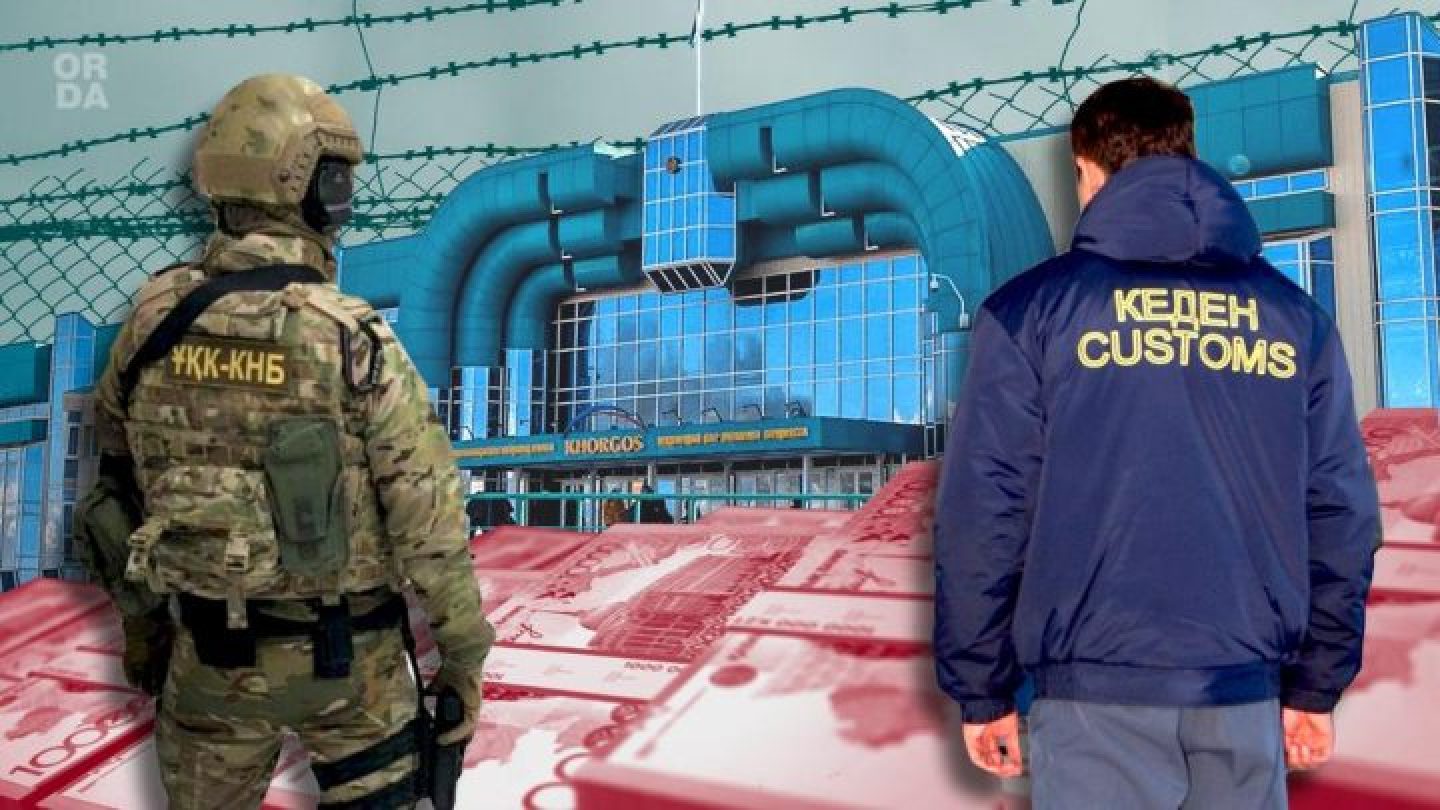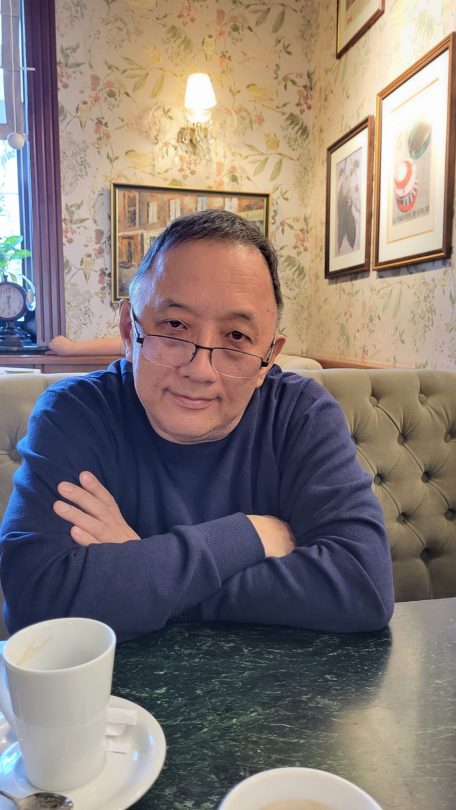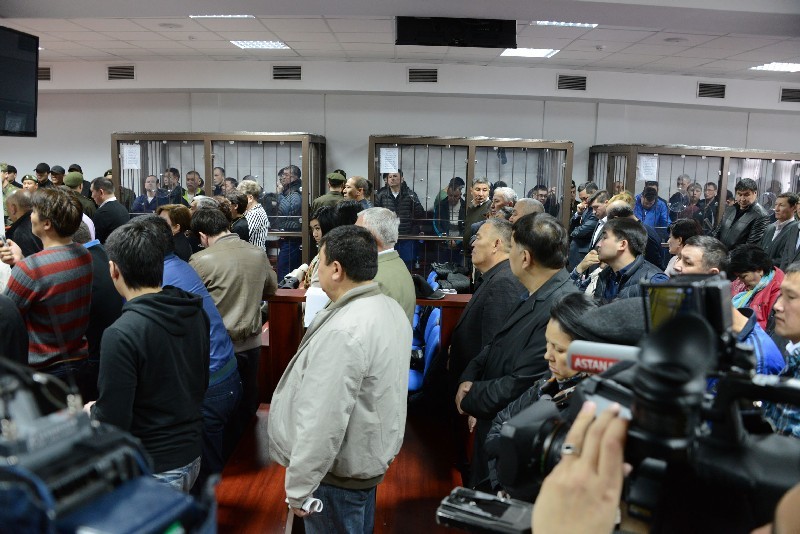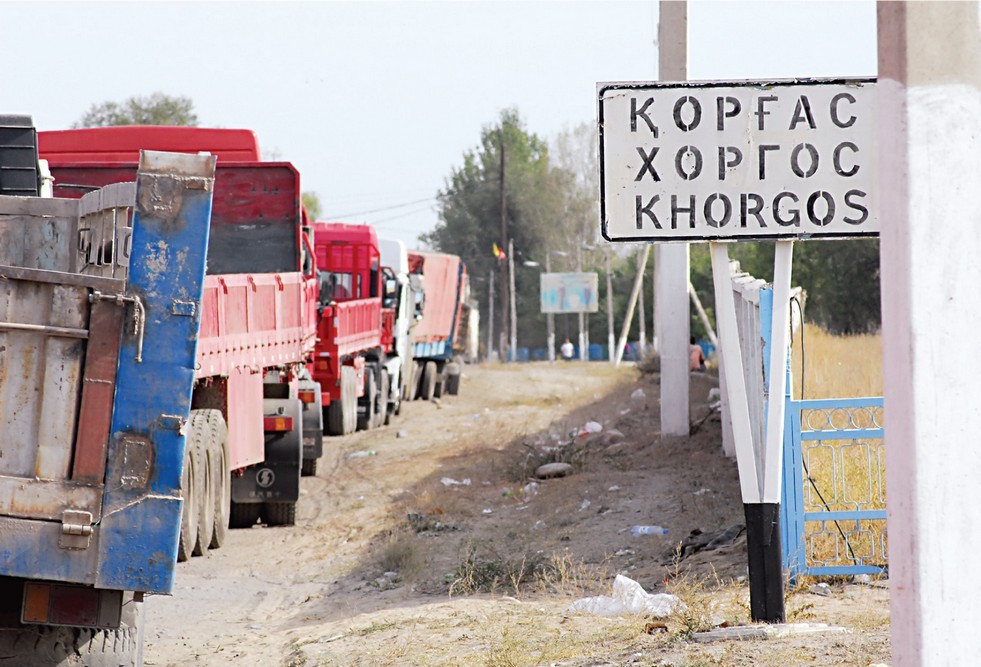Khorgos Case No. 1, or Who Was behind Exaction at The Kazakh-Chinese Border?
 Orda
Orda
Orda.kz examined details of the most high-profile anti-corruption case in the history of independent Kazakhstan and its assessment by lawyers.
In 2011, Kazakhstan was rocked by the news about the detention of three high-ranking KNB officers and several Almaty region customs service officials. They were suspected of creating and leading an organized criminal group that had been engaged in exaction at the Kazakh-Chinese border.
The investigation was conducted by employees of the Agency for Combating Economic and Corruption Crimes (ACECC). The criminal case itself was called "Khorgos", as most of the crimes were committed at the customs post with the same name. The trial was considered the largest in Independent Kazkhstan's history, as 600 witnesses, 47 suspects, 48 lawyers and 38 public defenders participated in it.

The investigation and court proceedings were accompanied by scandals. Many defendants and their lawyers claimed that the case was fabricated and confessions and material evidence were obtained illegally. The sentencing was followed by another controversy - information about the comfortable conditions of detention for convicted former customs and the National Security Service heads leaked to the media.
Orda has learned the opinions of the lawyers who represented the interests of two suspects in the case.
"Green Corridor" for Smugglers
It is believed that the history of the resonant anti-corruption case dates back to the spring of 2011 when mass arrests began. In fact, the count should have started much earlier since it took a year for an undercover financial police agent, nicknamed Sanych, to collect evidence of the guilt of all those involved in the exaction at customs.
The undercover agent managed not only to find out the powerful organized criminal group's entire scheme but also gained the confidence of its leaders. He secretly filmed the transfer of bribes to customs officers through intermediaries, frank confessions of brokers and entrepreneurs about who and under what conditions they are protected, etc. The footage later served as the prosecution's basis for material evidence. They would also become the main point of contention in court between prosecutors and lawyers. The defendants' lawyers argued that several materials from the covert surveillance were obtained illegally since the financial police did not always receive sanctions from the supervisory authority for conducting secret operational activities.
Regardless, ACECC employees found out how the established channel for the supply of contraband across the Kazakh-Chinese border operated.
Simply put, Kazkhstani entrepreneurs made wholesale purchases of consumer goods in a neighboring state. Then heavy-duty trucks with goods passed the border's "green corridor". "Their people" forged invoices for drivers – shipping documents.
Then truckers came to the customs posts "Khorgos", "Dostyk" and "Kalzhat", where they were issued customs declarations with a reduced value of goods. The characteristics and purpose of the product itself often changed: building materials would be passed off as sawdust, household appliances – as spare parts of electrical appliances, etc.
Then the cars with contraband cargo accompanied by "bratki" (term used to refer to members in a criminal organization - Ed.) guards proceeded to temporary storage warehouses. There was a shipment of goods, it arrived at the clothing warehouses of Almaty and was sold in markets and stores.
"In this case, I represented the interests of one suspect who was previously engaged in the delivery of consumer goods from the Chinese XUAR to Kazakhstan. He worked according to a "grey scheme", that is, he did not pay most of the taxes and duties to the treasury. Everyone called him Cubist because the volume of his cargo was calculated in cubic meters. Every day, an average of six heavy-duty trucks packed with his goods – clothes, shoes, household appliances, furniture and building materials of Chinese production - passed through the Khorgos customs post. At some point, Talgat Kayyrbayev, one of the leaders of the organized criminal group, figured him out, so Cubist had to pay tribute to bandits and their patrons, otherwise he could have been prosecuted for economic smuggling,"
lawyer Jean Kunserkin told Orda.

The criminal scheme only seems simple at first glance. It was actually complex because it involved a large chain of intermediaries. Everyone wanted to profit from smuggling, so they did what they could. The treasury did not receive taxes and customs duties as a result. The damage to the state was estimated in billions of tenge.
Soon the financial police learned the names of the involved officials protecting the organized criminal group at the border. They were the head of the 5th department of the KNB, Colonel Talgat Zhakayev, the head of the 4th department of the KNB, Lieutenant Colonel Irlan Abdrakhmanov, the deputy head of the KNB department for Akmola region, Colonel Bakhytbek Kurmanaliev, the head of the customs control Department for Almaty region, Colonel Kurmanbek Artykbayev and several of his lower ranking subordinates. All of them were detained and placed in a pre-trial detention center.
The criminal community of smugglers was led by Talgat Kayyrbayev and Bakhyt Otarbayev. They, along with members of the organized criminal group of brokers and entrepreneurs, were also arrested.
"My client initially was a witness in the case, like many other affected entrepreneurs. He calmly testified against corrupt customs officers, arrogant bratki (Term used to refer to members in a criminal organization - Ed.) and their intermediaries, until he was suddenly reclassified to the category of a suspect. Kubovchik was charged with a criminal article "Economic smuggling" and (they - Ed.) hinted that if he did not actively cooperate with the investigation, he could be sent to places not so distant for five or seven years. He was shocked by such a metamorphosis, but he had nowhere to turn. As a result, the criminal case against him was terminated due to active remorse and cooperation with the investigation. Currently, he continues to do business on the border. As you know, this business is legal, transparent,"
says Kunserkin.
Orda spoke with several lawyers who took part in the "Khorgos case". We asked them to comment on the investigation and the trial's progression and share their former clients' phone numbers. However, all of them, with the exception of two lawyers, refused to assess the events and share said contacts.
Our interlocutors explained that the investigation allegedly operated with egregious procedural violations and that not all the perpetrators were held responsible. Therefore, they believe, it is too early to put an end to a high-profile case. The lawyers, however, do not have direct evidence of the guilt of the investigative task force's individual employees and thereby cannot openly accuse them. Their clients also flatly refused to communicate with us: some do not want to stir up the past, while it is nonbeneficial for others - their confessions would cast an unflattering light on them.

We found a publically accessible speech made by the head of the investigative team – the head of the Department of Special Prosecutors of the Prosecutor General's Office Ulugbek Patsayev at a briefing in the capital.
He then stated the following:
"Officials of the national security and customs control bodies, using their official position, ensured the unhindered passage of contraband goods through the customs posts "Khorgos", "Kalzhat" and "Dostyk". During the investigation, 34 controlled criminal enterprises were established, registered with front persons, to which the main smuggling flow was carried out, and brokerage companies that issued documents according to the criminal scheme. 67 real estate objects, 162 cars, 69 million tenge, 1.5 million dollars, 164 thousand euros, as well as ounces of gold were arrested. The value of the contraband cargo from China detained in 2011 was estimated at 1.5 billion tenge."
During the investigation, which lasted more than two years, the suspects were charged with:
- Creation and management of an organized group, as well as participation in it;
- Receiving a bribe;
- Economic smuggling;
- Abuse of power;
- Legalization of funds or other property acquired illegally.
The main defendants in the resonant "Khorgos case", i.e. the ex-high-ranking officers of the national security and customs authorities, categorically refused to admit their guilt in the charges. The remaining suspects partially or fully admitted guilt and cooperated with the investigation in exchange for a reduced sentence.
"I represented the interests of my client, known by the nickname Big Nurzhan. He was the head of the structural unit of the customs post "Kalzhat" and, according to investigators, allegedly reported to Talgat Kayyrbayev, one of the leaders of the organized criminal group. Nurzhan was accused of economic smuggling and participation in organized criminal groups. He was wanted until December 2011, when he was detained and placed in a pre-trial detention center. My client did not admit his guilt, he considered the case materials against him to be falsified. However, the court found him guilty and sentenced him to nine years and six months in prison. Five years ago, he was released from prison,”
says lawyer Gulkhan Okapova.

The criminal case consisted of 1,576 volumes. 47 suspects, 600 witnesses, 48 lawyers and 38 public defenders participated in the largest trial in the history of independent Kazakhstan. The proceedings were conducted by two judges – a main one and a reserve, 4 prosecutors represented the state prosecution. One of them was a military prosecutor.
In April 2014, the judge of the military court of the Almaty garrison, Sovetkhan Sakenov, announced the verdict. Former high-ranking employees of the KNB, Talgat Zhakayev and Irlan Abdrakhmanov, were sentenced to 17 years in a high-security colony, and Bakhytbek Kurmanaliev to 16 years.
The ex-head of the customs Department of the Almaty region, Kurmanbek Artykbayev, was given 14 years. The former head of the Khorgos customs post, Lieutenant Colonel of the customs service, Bakhytzhan Aidarov, received five and a half years in prison. The former head of the Kalzhat customs post, Mindulla Umbetkaliyev, was sentenced to nine years in prison. The former head of the customs post "Alatau-CTO", Mikhail Voitovich, received eight years.
Talgat Kayyrbayev was sentenced to 16 years, Bakhyt Otarbayev to 13 years. The most minimal term – two years probation – was given to ordinary brokers.
The appeals court subsequently changed the sentence for two people, replacing imprisonment with restriction. The convicted were sent to serve their sentence in East Kazakhstan Region. In 2019, a Semey court replaced Artykbayev and Zhakayev's unserved portion of their punishments with a fine in accordance with a presidential decree. According to our information, today only two persons involved in the "Khorgos case" remain in prison, the rest have long been released.
Inter-clan Showdowns
Nine years ago, the verdict in the "Khorgos case" was announced. For many years, few Kazakhstanis doubted the infallibility of the financial police employees, who exposed corrupt customs officers and national security agencies. Everyone was sure that the financial police were genuine heroes, while all the critical reviews of lawyers and convicted persons' relatives about their working methods were nothing more than attempts to besmirch the brave fighters against corruption. However, over time, this halo of sanctity has faded a little. People began to look at the work of financial police from a slightly different angle without rose-coloured glasses.
“I believe that there was a conflict between two departments – the Agency for Economic and Corruption Investigations and the National Security Committee. FinPol (financial police - Ed.) was one step ahead of the KNB, so all the laurels of winners and awards went to them. And if you look at it this way, then the "Khorgos case", as it seems to me, is nothing more than an ordinary raider seizure of an established and super-profitable business. One clan overcame the other in the division of the sphere of influence, which is why extreme people appeared in the person of those convicted in the indicative "Khorgos case,"
says Okapova.

At one point in time, it was believed that the high-profile case was managed to be untwined thanks to the undercover financial police agent Sanych, who infiltrated the organized criminal group to conduct surveillance of persons of interest. Some media praised him vying with each other, noting his bravery, courage, instincts, and integrity in the fight against corruption. However, later critical reviews replaced enthusiasts. Sanych himself came under investigation.
In July 2017, he was detained on suspicion of the murder in 2012 of the former customs officer Zhamashev. At the time, the media wrote that the charge against him was dropped, as he was not involved in this crime. Albeit, in 2022 there was information that Sanych was suspected of restocking the arsenal of the criminal authority Wild Arman during the bloody January events and also of fraud. So who is Sanych – a hero or a villain?
"I personally do not consider Sanych a hero, but rather, a pawn in someone else's game. He was used secretly in the "Khorgos case", and then (they - Ed.) distanced themselves from him as soon as he started having problems. You see, the very methods of Sanych's work gave rise to some doubts for lawyers because he often played a balancing game with provocation,"
says Okapova.

There were also a lot of rumors about the investigation's shady side in the high-profile anti-corruption case. The media wrote that on January 19, 2012, the customs officer of the Kalzhat post, Nurbulat Gabdullin, committed suicide. He was reportedly unable to endure the psychological pressure. Under purportedly strange circumstances, Erlan Abrakhmanov, the former head of the Khorgos customs post, was killed in an accident. On June 6, 2012, Medet Zhamashev, an employee of the Customs Control Department, was killed near his home in Almaty. They wrote that the former head of the customs post "Alatau – TSO" Mikhail Voitovich was brutally beaten in the cell of the Almaty pre-trial detention center. As a result of the torture, he died a few months later in a colony for former law enforcement officers.
In 2011, law enforcement officers reported that 28 trucks and 11 wagons with contraband cargo were detained during the investigation. The preliminary damage caused by the organized criminal group to the state was estimated at 1.5 billion KZT. No one has named the exact amount.
Many lawyers were then dissatisfied with how the staff of the investigative task force carelessly handled the evidence, not ensuring safekeeping.
"I can't understand how the damage assessment was carried out when none of the investigators unpacked the boxes with the seized goods and examined their contents? I myself was at the temporary storage warehouses where this confiscated cargo was located, and I saw that the boxes with evidence had not been opened. A reasonable question arises, how in this case were the commodity expertise and other studies referred to by the investigation carried out? Incidentally, I later heard that some of the confiscated goods were stolen on the sly while the investigation and trial were going on,"
says Okapova.
Five years ago, a two-part documentary in the genre of independent investigative journalism was broadcast on Republican TV. The heroes of the program, officials of the financial police, talked about the course of the investigation, noting interesting details. For example, how the leaders of a gang of smugglers, through their driver, transferred a bribe of 300 thousand dollars to the chief customs officer of the Almaty region every week. They even showed Kurmanbek Artykbayev's fleet of cars, where Mercedes-Benz Brabus and BMW Hamann worth 750 thousand and 500 thousand dollars, respectively, were recognized as the most luxurious and exclusive models.
The audience had the impression that honest and fair financial police officers were engaged in an uncompromising struggle with corrupt officials of all stripes and no one and nothing could prevent them from doing so. Only the lawyers were sceptical about the financial police's PR.
"I am confused in this case by one episode related to an attempt to pay a bribe of $1 million for the collapse of the case against the main defendants. This money was clearly intended for someone from the powerful Olympus in Astana, and even an investigation was conducted on this fact. However, later it was stopped for some reason, and no one was charged with giving or receiving a bribe on a particularly large scale. It remains unclear who eventually got a million dollars, as FinPol did not fully understand. This is about the unbiased and impartial approach of its employees to their work,"
says Okapova.

And what about getting statements from suspects? Usually, detained leaders and members of organized criminal groups claim that police investigators and comittee members implement torture and psychological pressure. And here the case was conducted by "white–collar" financial police. So were there illegal investigative methods or not? Both of our interlocutors are lawyers who deny torturing being used against their clients. At the same time, they note the psychological pressure was present.
"I know that the testimony of some witnesses, for example, truckers, was given under carbon copy. Finpolovtsy (financial police - Ed.) exerted strong psychological pressure on customs officers to testify against their superiors. I know for sure that during the investigation, one of the suspects – a pregnant broker, lost her child as a result of stress. Pressure was exerted on many suspects, they talked about it in court when they renounced previous confessions,"
the lawyer says.
According to Gulkhan Okapova, her client Nurzhan struggled with such an experience after being released. He spent two and a half years in jail awaiting trial, then served two years in a penal colony, while never speaking of beatings or torture. But this period was enough for him to learn a lesson from what happened. Now he is engaged in business and is raising children. He does not want to remember his prison experience or the financial police employees.
"We, lawyers, sometimes irony ourselves about how successful the careers of many finpolovtsy (financial police - Ed.) and prosecutors involved in the "Khorgos case" have been. Judge for yourself: one of the four state prosecutors – Saken Ermekbayev from the Almaly district Prosecutor's office – later became Deputy Prosecutor of Almaty, then he left for the Prosecutor General's Office. FinPol investigator Perov became the Economic Investigation Service's head. Another investigator, Timur Kryldakov, became a special prosecutor, now he heads the interdepartmental investigative task force on the case of Wild Arman,"
says Okapova.
So why do law enforcement officers fail to put an end to exaction at the border despite all the measures they take to prevent corruption? Why do officers appointed to the posts of heads of customs divisions not always pass the set standards?
"My answer is simple: no one will ever eradicate corruption in Kazakhstan, because it is in our blood. All anti-corruption preventive measures carried out by law enforcement officers, in my opinion, are nothing more than fiction. When I hear how employees of one department detain representatives of another department for bribes at the border, then I catch myself thinking about another someone's report for reporting purposes. Here, they say, what good fellows we are, we caught the bribe takers red-handed. The problem is that mostly small fish get caught up in the network of law enforcement officers, large predators, as a rule, slip away,"
says lawyer Gulkhan Okapova.
From The Editorial Office
The "Khorgos case" of 2011-2013 was the first in a series of high-profile corruption customs scandals. There would later be other criminal cases investigated by various law enforcement agencies. The KNB initiated the most recent case related to exaction at Khorgos in 2022. One of his defendants is the former deputy chairman of the KNB – Director of the Border Service, Major General Darkhan Dilmanov. He is suspected of abuse of power. The investigation has been completed, and the suspects are being familiarized with the materials of the criminal case.
Every time the scale of corruption in certain sections of the border surfaces, the public asks the same question: "Who is behind all this?"
There were rumors that for many years Elbasy's family and close circle controlled customs. In April 2023, on the sidelines of the Majilis, an Orda journalist asked Finance Minister Yerulan Zhamaubayev whether there is an investigation into the discrepancy in customs statistics between Kazakhstan and China, and whether the rumors about the involvement of the inner circle of Kazakhstan's first president are true. The Minister replied,
"You have named the final beneficiaries yourself."
Original Author: Zhanar Kusanova
DISCLAIMER: This is an edited piece. The text has been modified with the exception of quotes, the content is the same. Please refer to the original article in Russian for accuracy.
Latest news
- Chinese to Invest 70 Billion Tenge in "Underground" AI Project in Kazakhstan
- Thermal Power Plant Projects: Kazakhstan Looking for Alternatives for Russian Contractors
- Shymkent Theater Officials Accused of Embezzling Over 136 Million Tenge
- Ashgabat Responds to Media Report on Internet Access
- Rare Glimpse: Red-Listed Lynx and Secretive Badgers Filmed in the Wild
- Kairat Forward Becomes Youngest Kazakhstani to Score in Champions League
- Orda's Editor-in-Chief Targeted in Questionable Ownership Maneuver
- Businessman Tried to "Push Through" Astana Boiler House Project with a Bribe
- Foreigners Coming to Uzbekistan for Work Will Be Required to Take an HIV Test
- Toqayev Appoints New Director to Reorganized Anti-Corruption Body
- Former Employees of Key Witness Testify in Sarbasov Trial
- Kazakhstan Plans to Launch Direct Flights to New York, Tokyo, and Singapore
- Kazakhstan Expects Minimal Impact from U.S. Tariffs, Trade Ministry Says
- Hemp to Be Cultivated in Northern Kazakhstan for Industrial Use
- Tajikistan and Kyrgyzstan Sign Series of Cooperation Agreements After High-Level Talks
- Vostokmashzavod Disputes Railcar Downtime Charges from KTZ-Freight
- Alik Aidarbayev Appointed General Director of Kalamkas-Khazar Operating
- Trump’s Tariff: Experts Weigh In on Kazakhstan’s Possible Response
- Kazakhstan Meat Cleared for European Market
- Journalist Lukpan Akhmedyarov Reports New Wave of Pressure

